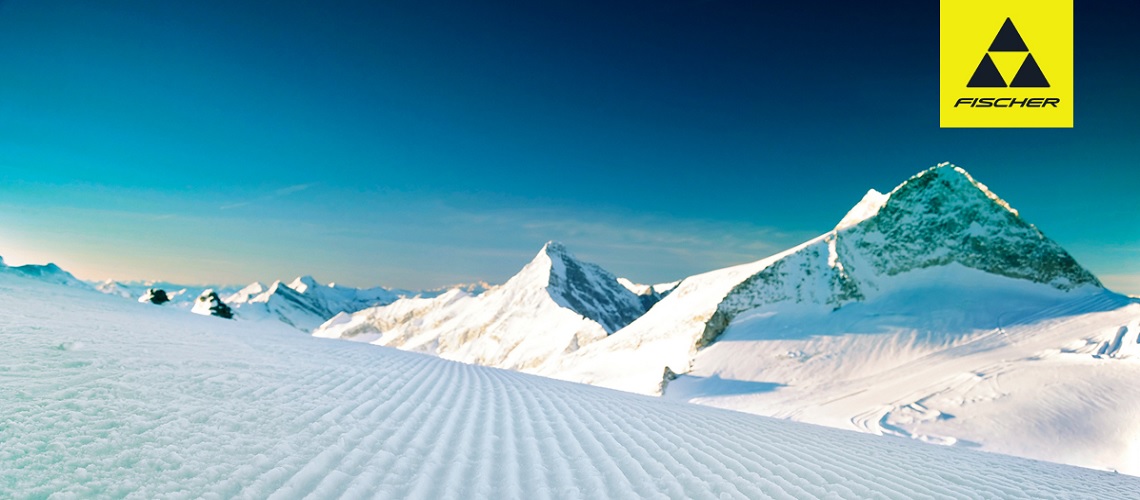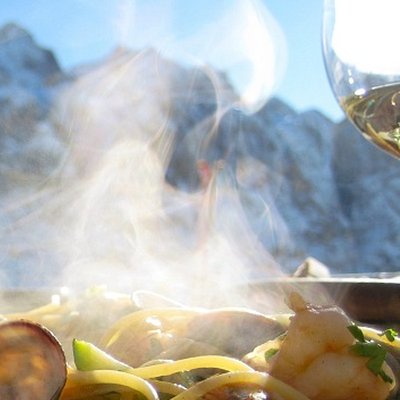13 Times In A Row: Fischer Is The Clear Winner In Nordic

The Ski Flying in Planica, Slovenia marked the end of the 21l22 World Cup season. Once again, the numbers clearly demonstrate how impressive Fischer’s success was: In the Nordic disciplines Cross-Country, Biathlon, Jumping, and Nordic Combined in the 21l22 World Cup season Fischer Race Family athletes earned places on the podium 281 times out of 159 events. They hauled in 98 World Cup victories, 92 second places, and 91 third places. On top of that, they secured 6 of the eight large crystal globes awarded to overall World Cup winners, along with 6 of the thirteen smaller globes for individual discipline World Cup victories. 59% of all podium places were won on Fischer skis and boots, as well as 71% on the TURNAMIC® binding set-up. After Fischer clearly proved itself once again to be the most successful ski, boot, and binding brand at the Beijing Olympics, Fischer athletes decisively confirmed that status over the entire season for the thirteenth time in a row since the 09l10 season. Just as impressive and successful was the performance of the new Speedmax packages of skis, boots, and bindings, where it wasn’t just their fluorescent yellow color causing the excitement.
Cross Country
Johannes Høsflot Klæbo of Norway laid the groundwork at the Tour de Ski for his successful season and in the end, not even the Corona virus could stop him. The two-time Beijing Olympic champion easily scooped up the overall World Cup with eight individual wins. He ended up the season in second place in the Sprint and in third in the Distance World Cup, this after being unable to make the starting line in the final four races. “Of course, I would like to have raced in Drammen and at Holmenkollen, but after I had traveled so much and rarely been at home, I gave myself a few days of rest and tried to let the wear and tear of the winter ease away,” explained the now-triple overall World Cup winner. Finland’s Iivo Niskanen stayed hot on his heels and can now look back on a successful season, in which he won the entire array of Olympic medals, the small crystal globe for the Distance World Cup, and took third in the overall final tally. Erik Valnes, Didrik Tønseth and Martin Løwstrøm Nyenget, all from Norway, took places five through seven; with Lucas Chanavat, from France, taking tenth in the overall World Cup, to contribute significantly to the Fischer Race Family’s successful showing.
The way to the women’s distance title went through Norway’s Therese Johaug, as usual. The dominant distance racer of recent years finally fulfilled her unrealized dream -three times over, in fact- of an individual Olympic gold medal, then convincingly took the crystal globe of the overall Distance World Cup title in wrapping up her impressive career. Sweden’s Ebba Andersson battled her way to third in the overall World Cup, while her compatriot Frida Karlsson took second place in the Distance World Cup after two individual victories. Though Slovenia’s Anamarija Lampic was unable to defend her Sprint World Cup title, she did secure second overall in the Sprint tally, which put her in eighth place in the overall World Cup, alongside five other Fischer athletes among the top eight.
Biathlon
Dreams also came true in the Biathlon. France’s two-time Olympic champion Quentin Fillon Maillet fulfilled his persona dream by winning the overall World Cup winner’s large crystal globe by taking eight individual races along with the Sprint and Pursuit individual World Cup titles. “I’ve made my greatest dream a reality. I wanted to become the best biathlete in the world. I’ve sacrificed so much for it, but this huge globe makes it all worth it,” said the beaming winner, clearly moved. Norway’s Tarjei Bø also fulfilled his dream of an individual Olympic medal with bronze in the Sprint and silver in Pursuit. On top of that, he earned sixth place in the overall World Cup standings, and the small crystal globe for the Individual discipline title at the end of his season’s campaign. The top medal hunter among all the Fischer athletes in Beijing was Norwegian biathlete Johannes Thingnes Bø. A four-time Olympic champion and a bronze medal winner, he was unquestionably the man to beat. Surprisingly, shortly afterward, the exceptional competitor announced an early end to his season. “After four intense years of working on all aspects of my sport, I needed a break. I used the time with my family to recharge my batteries so I’m ready to tackle the challenge of the overall World Cup title in the upcoming season.”
On the women’s side, Justine Braisaz-Bouchet of France already proved the Mass Start suits her especially well with a victory in the Olympics. As the season ended, the French athlete could again celebrate victory in this discipline, and this winter’s two-time World Cup winner could hardly believe she won the crystal globe: “It’s unbelievable. This is the best thing that’s ever happened to me!” Austrian Lisa Theresa Hauser battled her way to third place in the overall World Cup ahead of Sweden’s Hanna Öberg. Denise Herrmann of Germany wrapped up her successful season in sixth place overall, after her Olympic Individual triumph. Last year’s overall World Cup champion, Norway’s Tiril Eckhoff, found her form again, after a sluggish start to the season, just in time for the Olympics. The affable Scandinavian took home one of each of the medals in Beijing, then finished up the season in style with three World Cup victories.
Nordic Combined
The Nordic Combined basically belonged to Norwegians Gyda Westvold Hansen and Jarl Magnus Riiber. As Gyda Westvold Hansen was winning a fabulous seven out of eight World Cups, well ahead of her compatriot Ida Marie Hagen; Jarl Magnus Riiber came home first in thirteen of twenty starts. Even if his bout with Corona denied the high-flyer his chance at an Olympic medal, he was able to easily defend his overall World Cup title. With four large crystal globes adorning his trophy shelf, he’s overjoyed: “It’s unbelievable to win the overall World Cup again. So much happened this season, and it still hasn’t sunk in yet- but of course I’m extremely pleased.” On either side of Riiber in the overall World Cup standings are Johannes Lamparter of Austria and Vinzenz Geiger of Germany in second and third place. With every single Olympic Nordic Combined champion, and sixteen of eighteen medal winners, all wearing Fischer, the top fifteen places in the overall ranking were held by athletes of the Fischer Race Family.
Ski Jumping
Sara Marita Kramer of Austria was basically unbeatable. Seven World Cup wins easily took the Austria star jumper to the overall World Cup title. Unfortunately, Corona tapped the brakes on her run before the Olympics, but she still had a positive take on the season: “Winning the overall World Cup this season was my main goal. I’m overjoyed that this dream came true. What happened before the Olympics definitely left its mark on me mentally. You feel an emptiness. But with the way the World Cup went, it evens everything out.” Slovenian Olympic medalists Nika Kriznar und Ursa Bogataj finished up the season in second and third place, ahead of Katharina Althaus of Germany. On top of that, five more female Fischer athletes jumped into the top ten. On the men’s side, Karl Geiger of Germany battled right to the end for the winner’s large crystal globe, but had to be content with second place in the overall World Cup as a follow-up to his Olympic bronze. Austria’s Stefan Kraft was fifth, ahead of German Markus Eisenbichler, landing in third place in the discipline World Cup for Ski Flying.
Ski Marathons
The ski marathon season is far from over, however the athletes of the Fischer Race Family are clearly already dominating the proceedings. Fischer’s near-historic top three sweep of both the Vasaloppet and the Birkebeinerrennet by Andreas Nygaard (Team Ragde Charge, Norway), Emil Persson (Lager 157 Ski Team, Sweden), Max Novak (Team Ramudden, Sweden), und Axel Jutterström (Team Eksjöhus, Sweden) clearly highlights Fischer’s strengths in the long distance races. That trend continues, as Andreas Nygaard currently leads Emil Persson and Max Novak, followed by four more Fischer Race Family athletes in the Ski Classics overall ranking.














